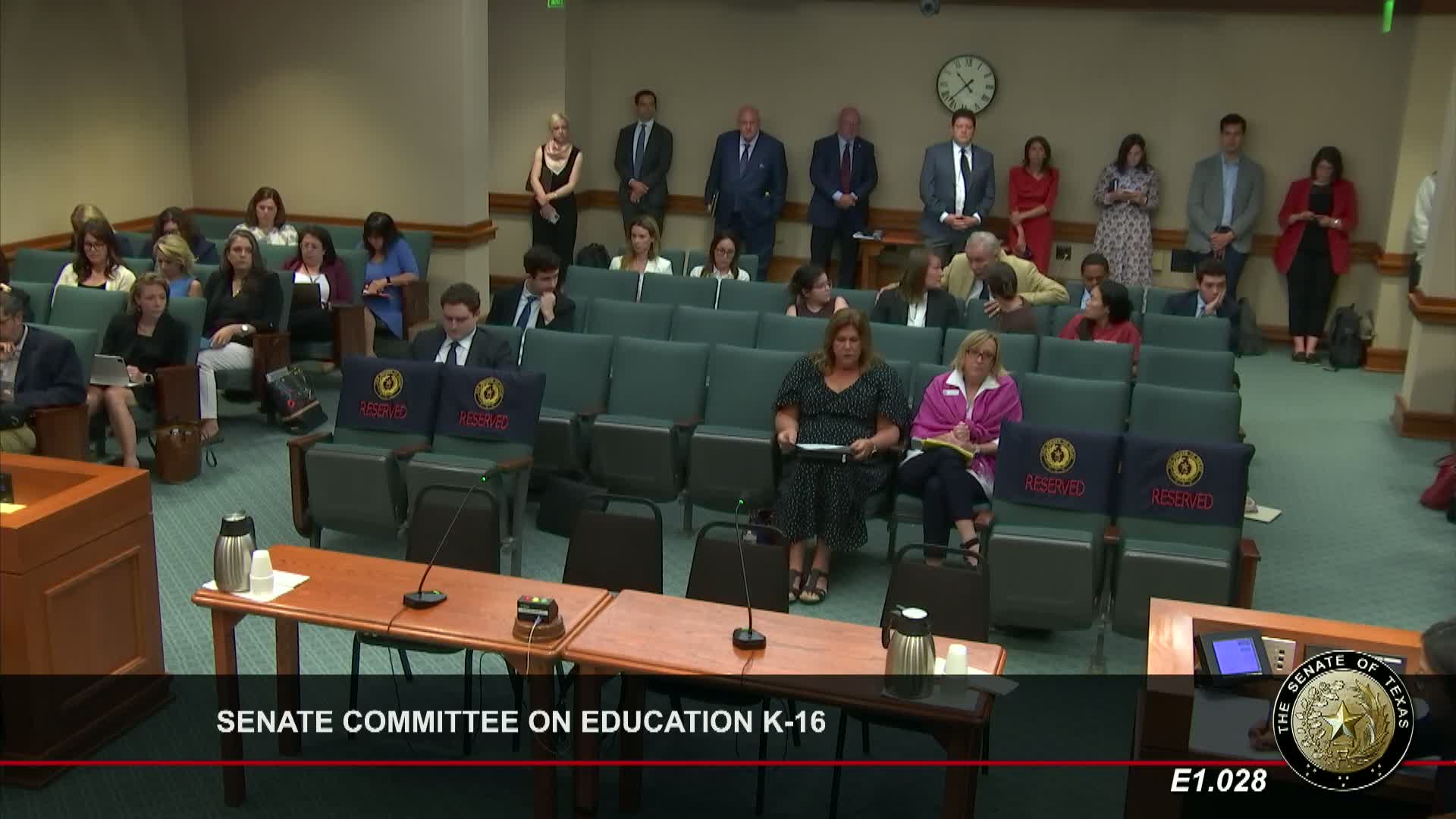Article not found
This article is no longer available. But don't worry—we've gathered other articles that discuss the same topic.
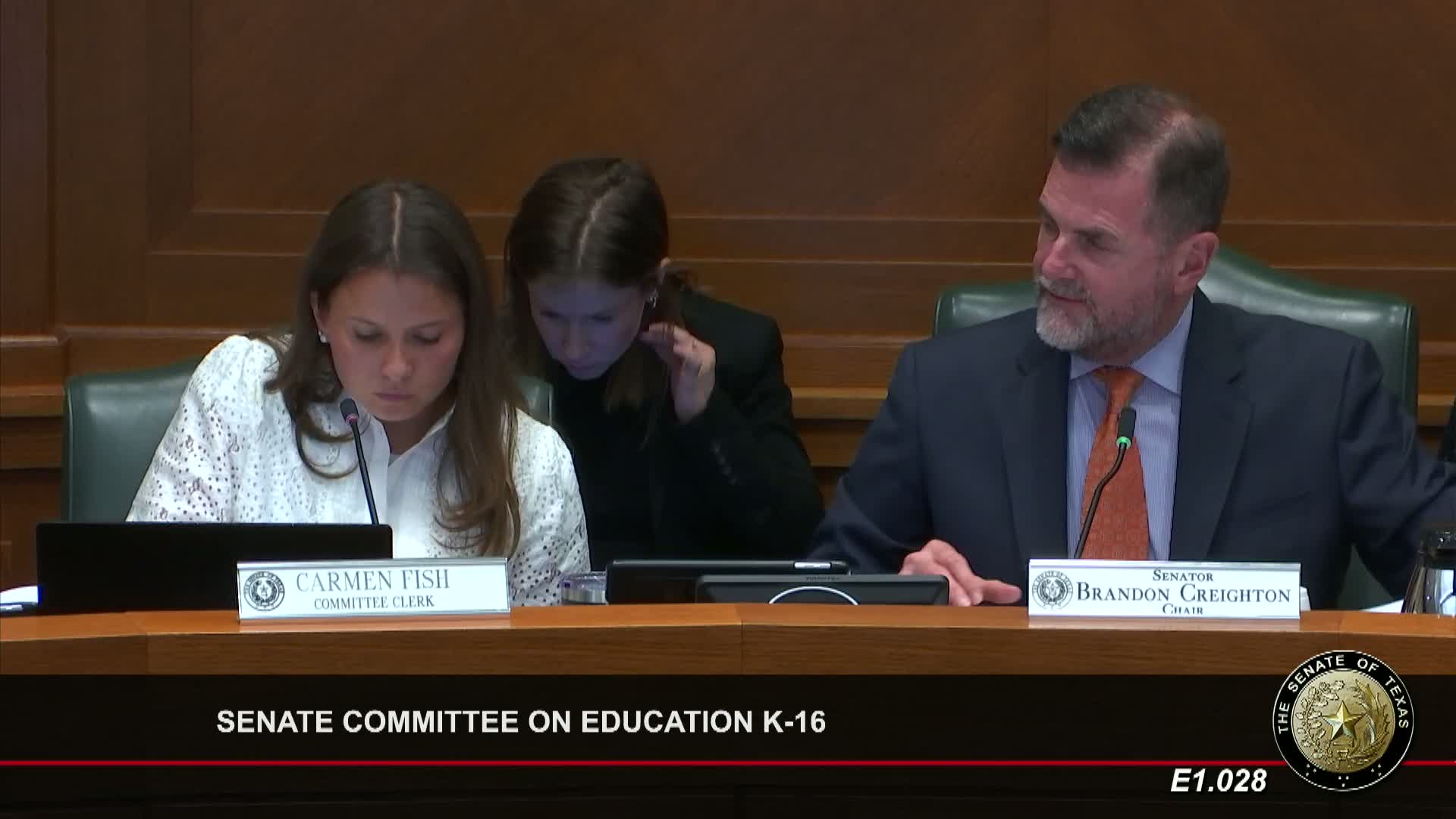
Committee hears bill to expand Holocaust education supports and teacher training
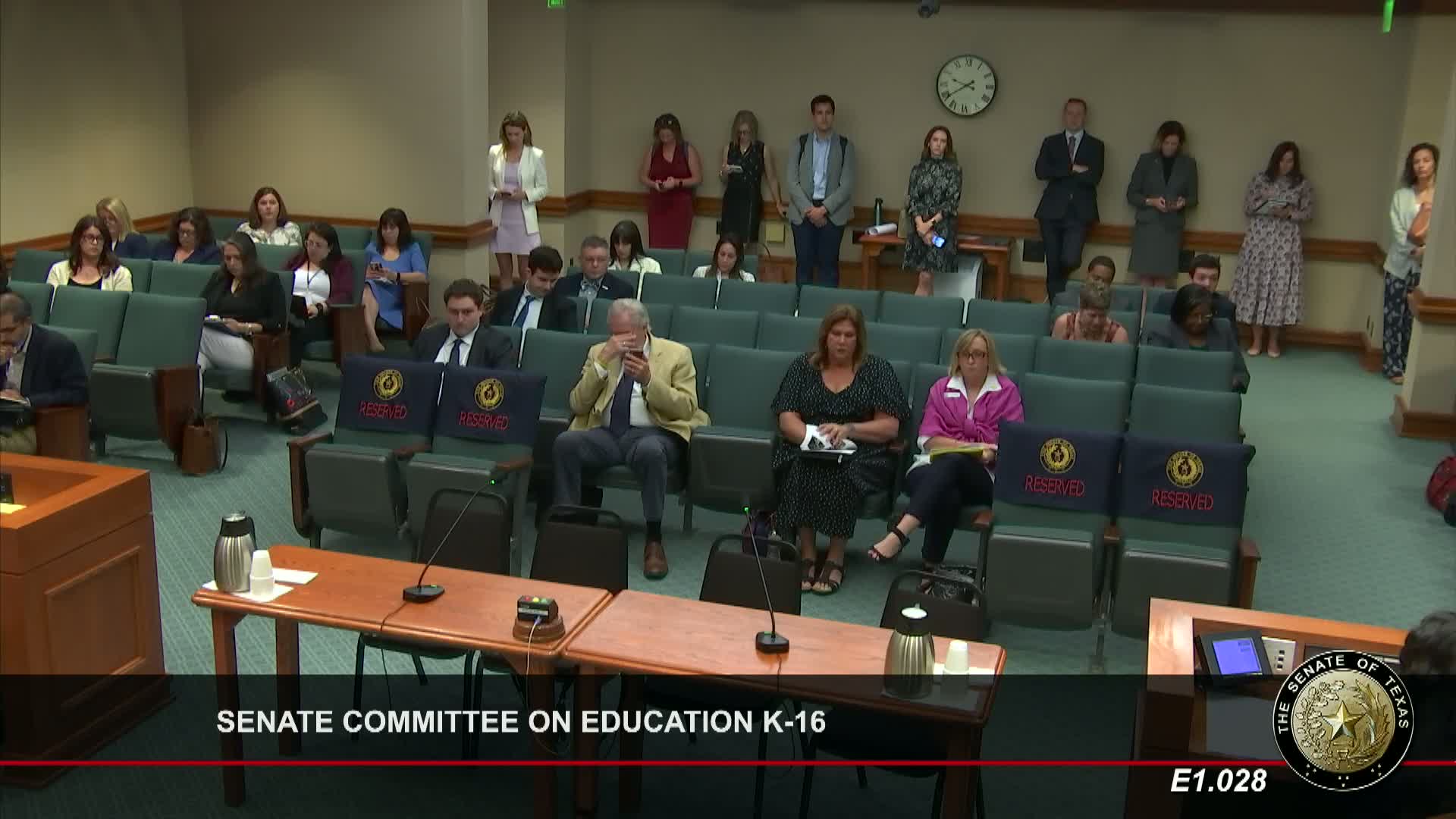
Committee considers bill requiring public colleges to prohibit nonimmigrant visa holders from supporting terrorism; civil-rights groups and students oppose
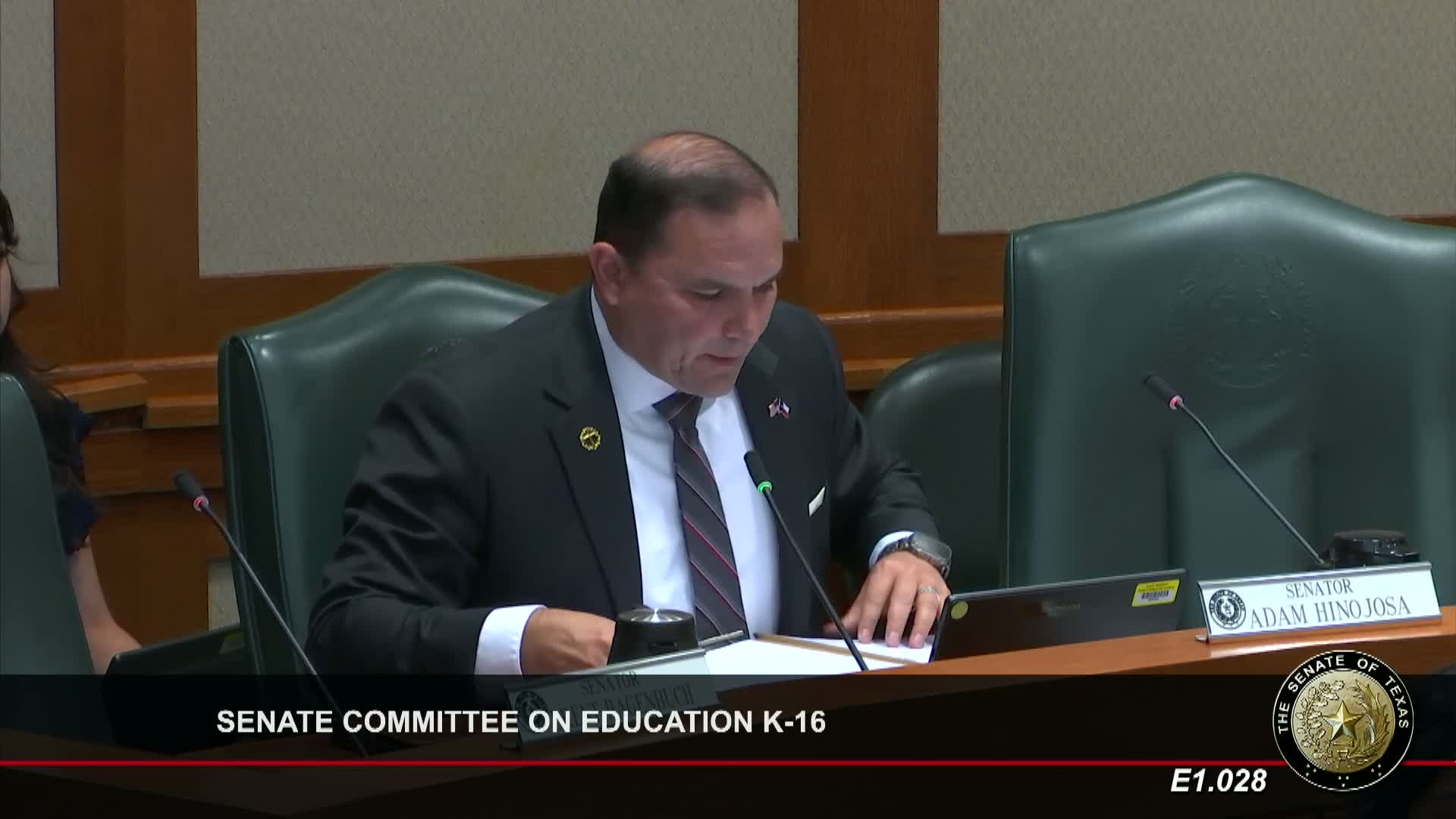
Bill would open Governor's University Research Initiative to private universities; Rice and Baylor testify in support
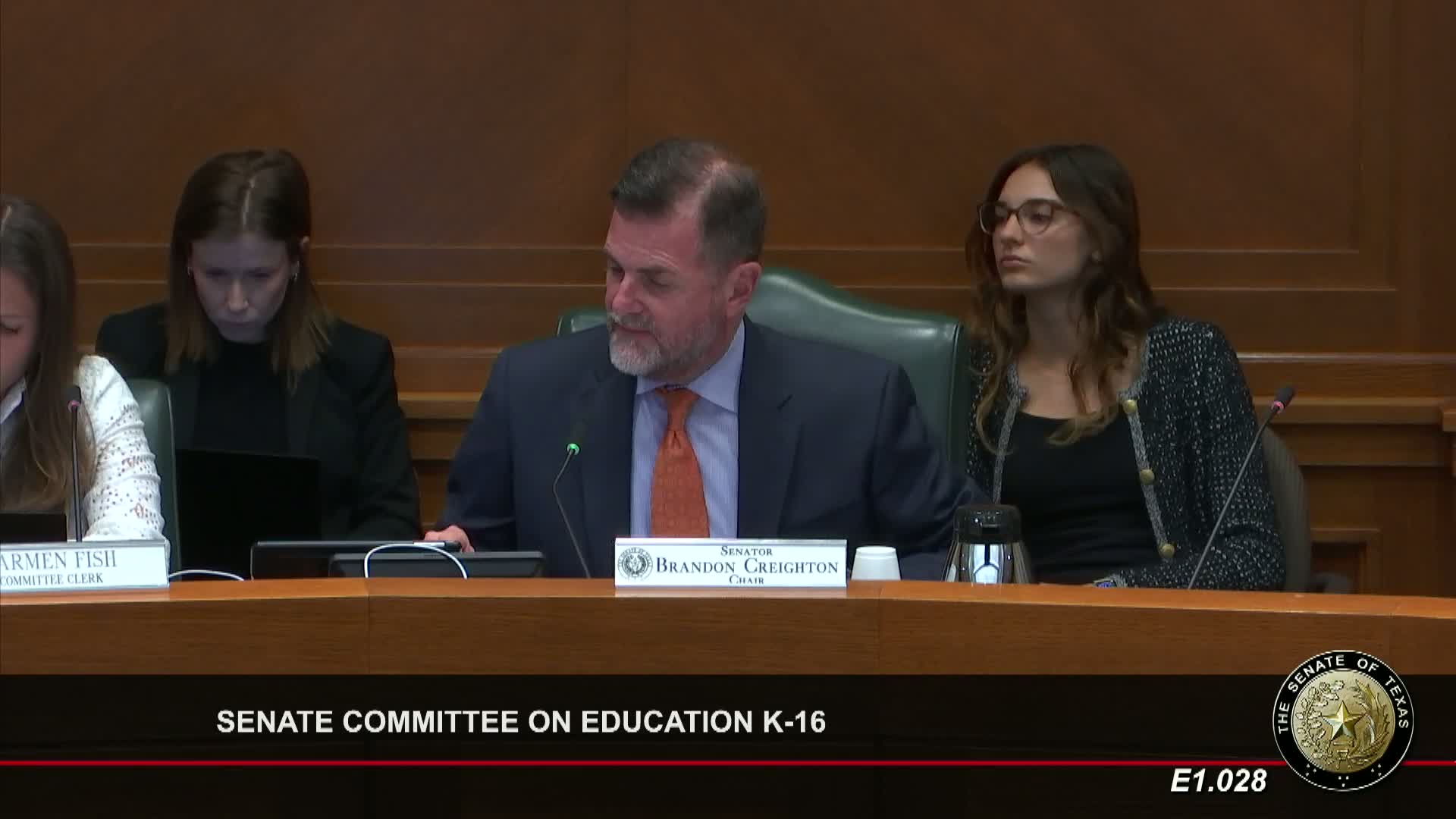
Committee hears bill to allow after-hours religious use of school and university facilities
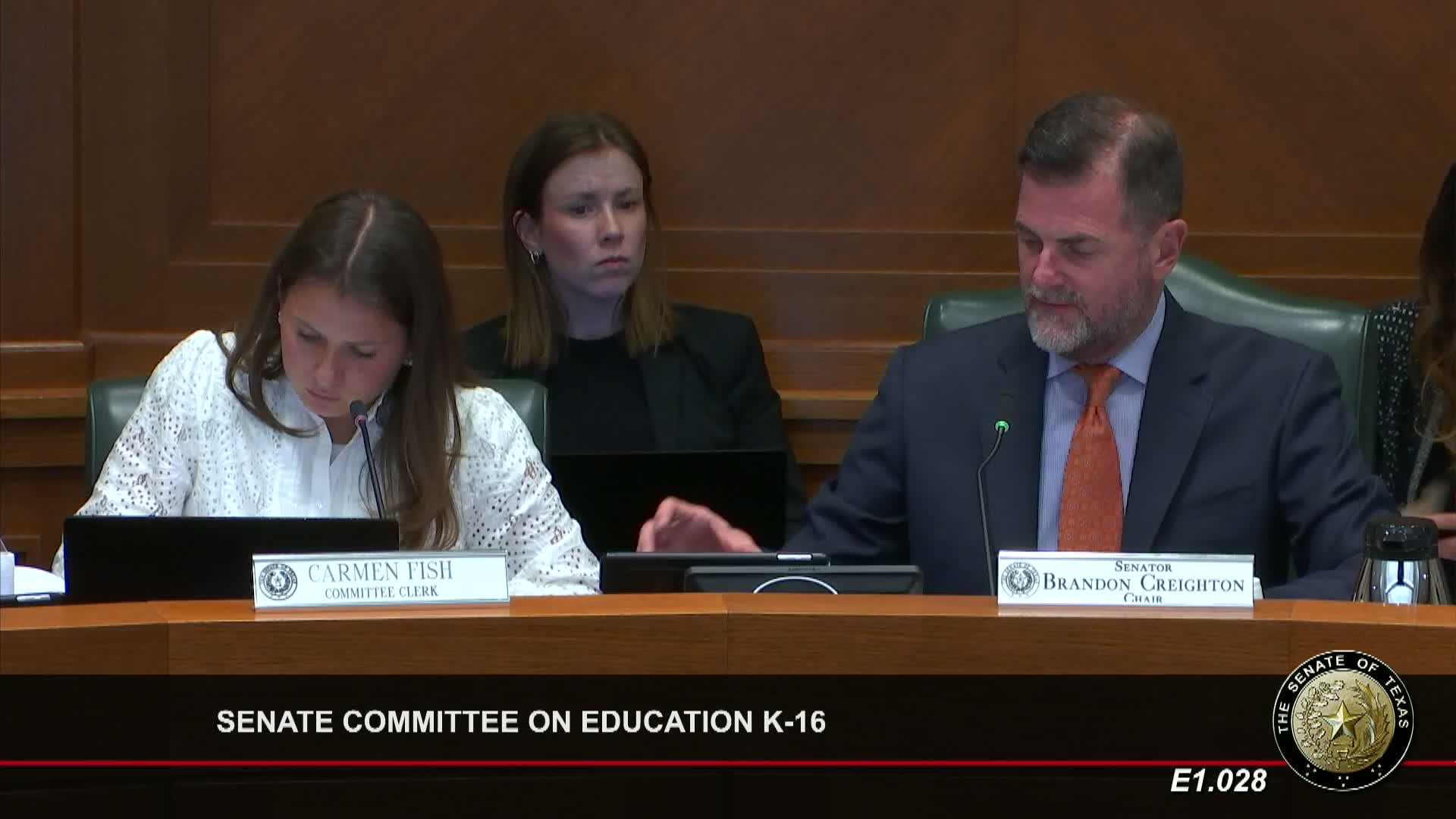
Committee approves committee substitute language on foreign-funded student organizations; bill left pending
